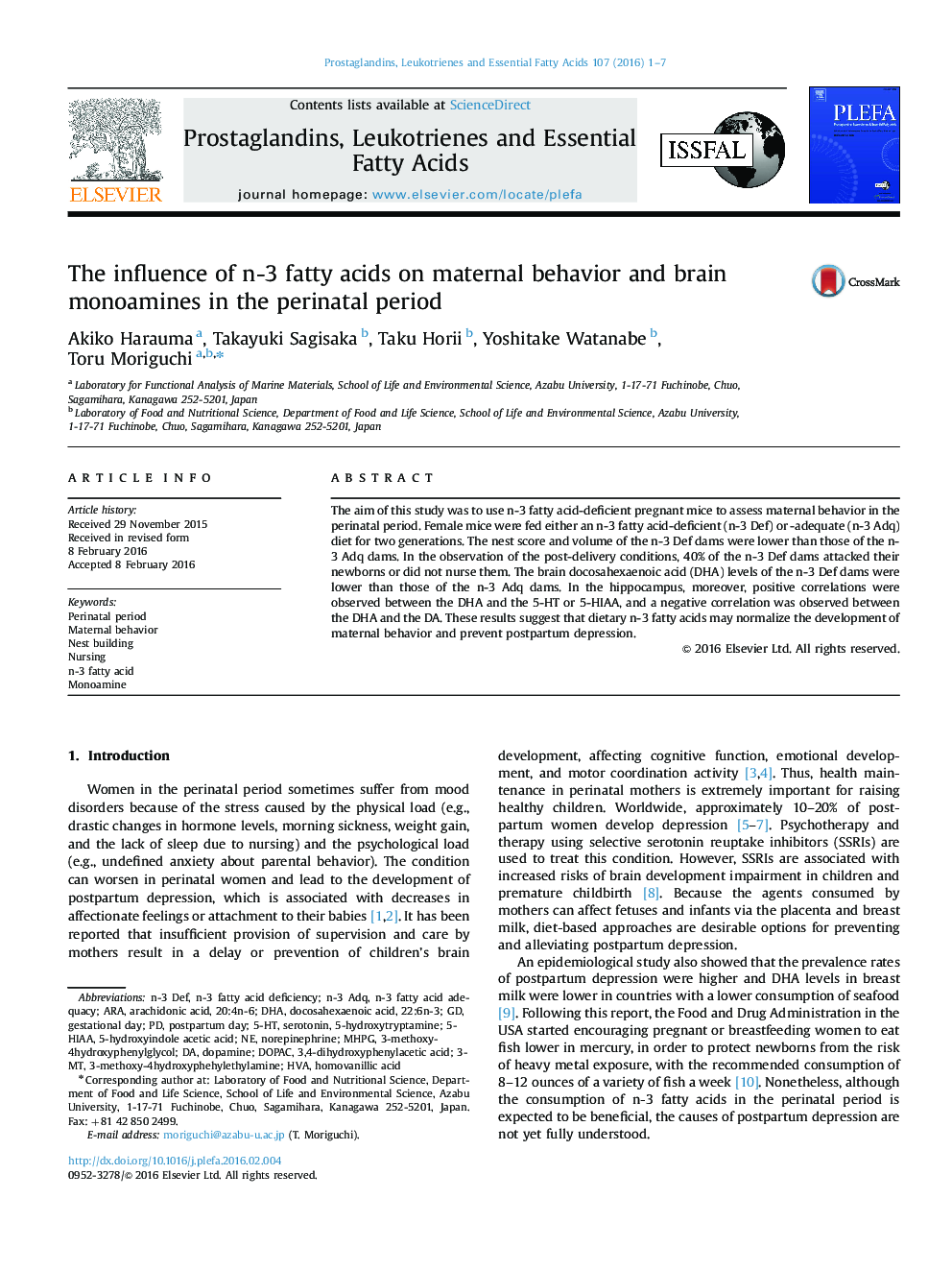| Article ID | Journal | Published Year | Pages | File Type |
|---|---|---|---|---|
| 5888400 | Prostaglandins, Leukotrienes and Essential Fatty Acids (PLEFA) | 2016 | 7 Pages |
Abstract
The aim of this study was to use n-3 fatty acid-deficient pregnant mice to assess maternal behavior in the perinatal period. Female mice were fed either an n-3 fatty acid-deficient (n-3 Def) or -adequate (n-3 Adq) diet for two generations. The nest score and volume of the n-3 Def dams were lower than those of the n-3 Adq dams. In the observation of the post-delivery conditions, 40% of the n-3 Def dams attacked their newborns or did not nurse them. The brain docosahexaenoic acid (DHA) levels of the n-3 Def dams were lower than those of the n-3 Adq dams. In the hippocampus, moreover, positive correlations were observed between the DHA and the 5-HT or 5-HIAA, and a negative correlation was observed between the DHA and the DA. These results suggest that dietary n-3 fatty acids may normalize the development of maternal behavior and prevent postpartum depression.
Keywords
3-MTdocosahexaenoic acid, 22:6n-3arachidonic acid, 20:4n-6MHPGSerotonin, 5-hydroxytryptamine5-HIAADOPAC5-HT3,4-dihydroxyphenylacetic acid5-hydroxyindole acetic acidN-3 fatty acidARAPerinatal periodDopamineDHAMaternal behaviorgestational daypostpartum dayNest buildingMonoaminenorepinephrinehomovanillic acidNursingHVA
Related Topics
Life Sciences
Biochemistry, Genetics and Molecular Biology
Clinical Biochemistry
Authors
Akiko Harauma, Takayuki Sagisaka, Taku Horii, Yoshitake Watanabe, Toru Moriguchi,
